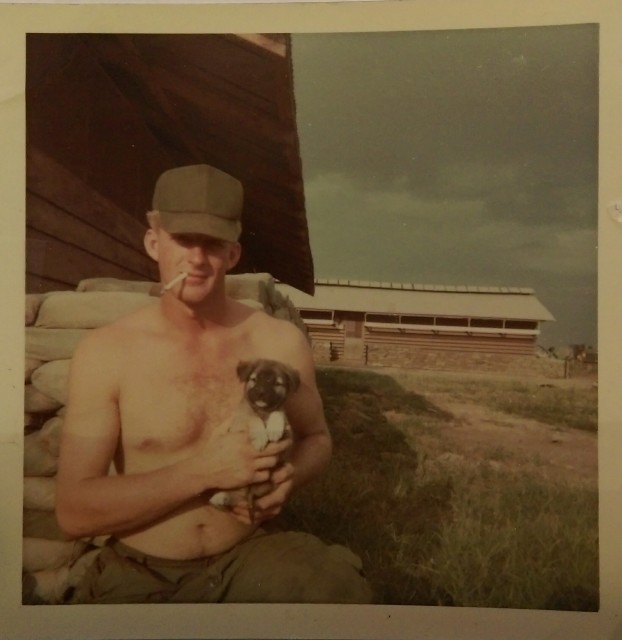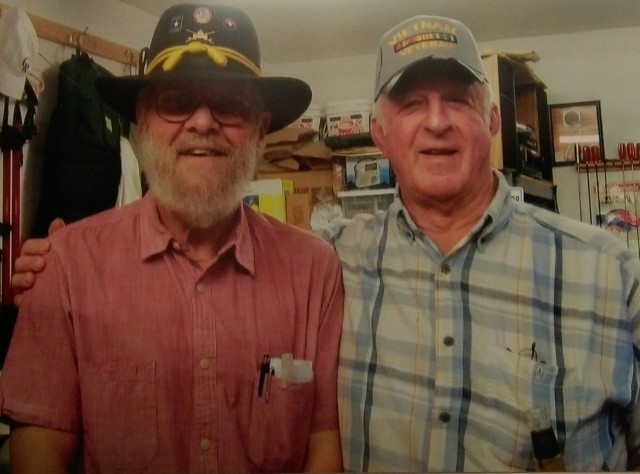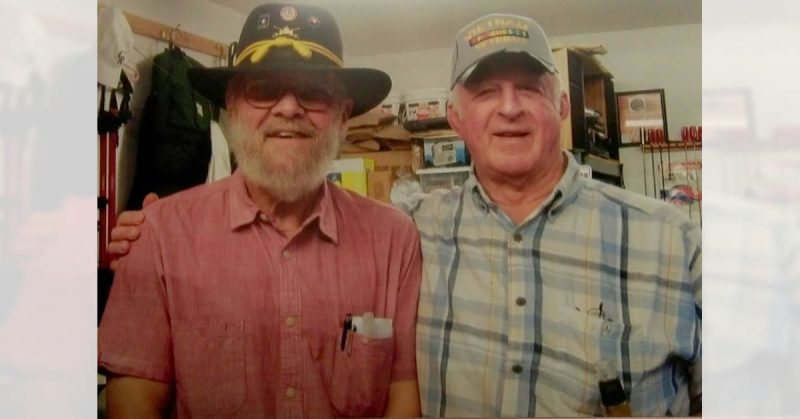War History Online presents this Guest Article from Jeremy P. Amick
The narrative often shared by Vietnam veterans is that when they graduated from high school in the mid-to-late 1960s, they either enlisted in the military because they believed they would be drafted or they went to work, simply biding time until their draft letter arrived.
California, Mo., veteran Robert Cliburn chose the latter and began working at a plant in Jefferson City after his graduation from Russellville High School in 1965.
“I had two older brothers who had joined the Navy,” said Cliburn. “After I finished (high) school, my father asked me what I was going to do and I said, ‘I think I’ll take my chances and go to work,’ but I was really just waiting to be drafted.”
Whether foresight or simply an educated guess, Cliburn received “a big brown envelope” in September 1966, which contained his draft letter—an abrupt welcome to the world of the United States Army.
In less than two weeks, the 19-year-old draftee processed through Jefferson Barracks and spent a few days at Ft. Leonard Wood. He and a large group of trainees were then loaded on Greyhound buses and transferred to Ft. Hood, Texas, where they were attached to the First Armored Division for their basic and advanced training.
“At some point, they conducted interviews with (the trainees),” Cliburn explained. “I told them that I was a farmer and could run a tractor, and that my father was in the bulldozer business and that I could operate a dozer as well.”
With a grin, he added, “So, they made me a tank driver.”
Weeks later, he finished his training and remained on the fort, participating in training exercises as the driver for an M48A3 Patton—a medium tank with a 90mm main gun and a V-12 air-cooled diesel engine.

During his cycle of training, Cliburn witnessed “allocations that came down,” identifying soldiers scheduled for service in Vietnam; however, he seemed to avoid the selection process until reaching the eleventh month of his two-year enlistment.
“They finally got me,” he said, “and before I knew it I was landing in Tan Son Nhut Air Force Base (Vietnam) as a replacement.”
In August of 1967, he transferred to Camp Bearcat—a U.S. Army base near the city of Biên Hòa in southern Vietnam; it was here he was attached to Troop B, 3rd Squadron, 5th Cavalry.
“The first six months or so we operated on missions around Bearcat,” Cliburn said. “B Troop consisted of nine tanks and 27 personnel carriers and we could kick some butt with that arrangement,” he smiled. “But the monsoons were going on and we were getting stuck in the jungles down there—a heavy tank doesn’t work well in that type of environment.”
While participating in southern operations, Cliburn and his fellow tankers were often engaged in guerrilla warfare against small groups of enemy forces, which he described as “we’d fight and push them back, and then we’d get pushed back a little … and so on.”

He continued, “Then they loaded us on LST’s and sent us north of Da Nang,” he recalled. “We were on more solid ground and they seemed to be having more trouble up there, too. In the south, we fought smaller groups, but up north we started fighting battalion size elements of NVA (North Vietnamese Army).”
In addition to dismounting their tanks and securing a network of underground tunnels that housed a significant cache of enemy weapons, Cliburn received a harsh introduction to the dangers of armored warfare when he assisted in the rescue of a stranded tank.
“We thought a tank was dead after it had been hit by an enemy rocket,” Cliburn said. “I went in there to help retrieve it and when I jumped off our tank to hook up the tow cable to drag it out of there, I could hear it idling; it had been idling all night,” he said.
With bullets from NVA soldiers “pinging” around him, he climbed into the tank, shifted it into reverse and drove to safety. Though he avoided injury, he later would spend more than a month on a hospital ship after receiving serious burns when a flare accidentally ignited in his tank. Regardless, none of these previous experiences served as the central reflection of his time spent in Vietnam.
Well into his tour, Cliburn was “pulled from the jungle” and given “several days of R & R (rest and relaxation) in Hong Kong.
“I had $400 to take with me and I knew that wouldn’t be enough, so I borrowed $100 from my friend, Jack Monturi,” he said. “I told Jack I would pay him back the following month.
When Cliburn returned, he learned that Monturi was medically evacuated after receiving serious wounds during a mission.
“I never saw him again,” he said.
Cliburn’s tour ended in late July 1968, at which time he returned to Mid-Missouri, married his fiancé, Timmie Hume, and went on to raise a son and daughter. Now retired from a lengthy career in construction, Cliburn notes he was recently able to repay the debt he incurred in Vietnam nearly a half-century ago.
“Last year I bought my wife a new laptop and I asked her if she could find the contact information for Jack (Monturi)—and she did,” Cliburn explained. “When I called him and I told him who I was, he said, ‘You owe me $100,’We talked for awhile and I got his home address and went and visited him last year and gave him $500 to cover the loan with interest.”
In closing, Cliburn added, “You really don’t know what we went through (in Vietnam) and we really didn’t know what we were there for … we just knew that we had to be there. But meeting people like Jack and being able to connect after all those years to share our stories … well, you can’t put a price on that.”
Jeremy P. Ämick is the author of four military history books available at www.localmilitaryhistory.com.
